Master of Ceremonies: Nicole Cliffe
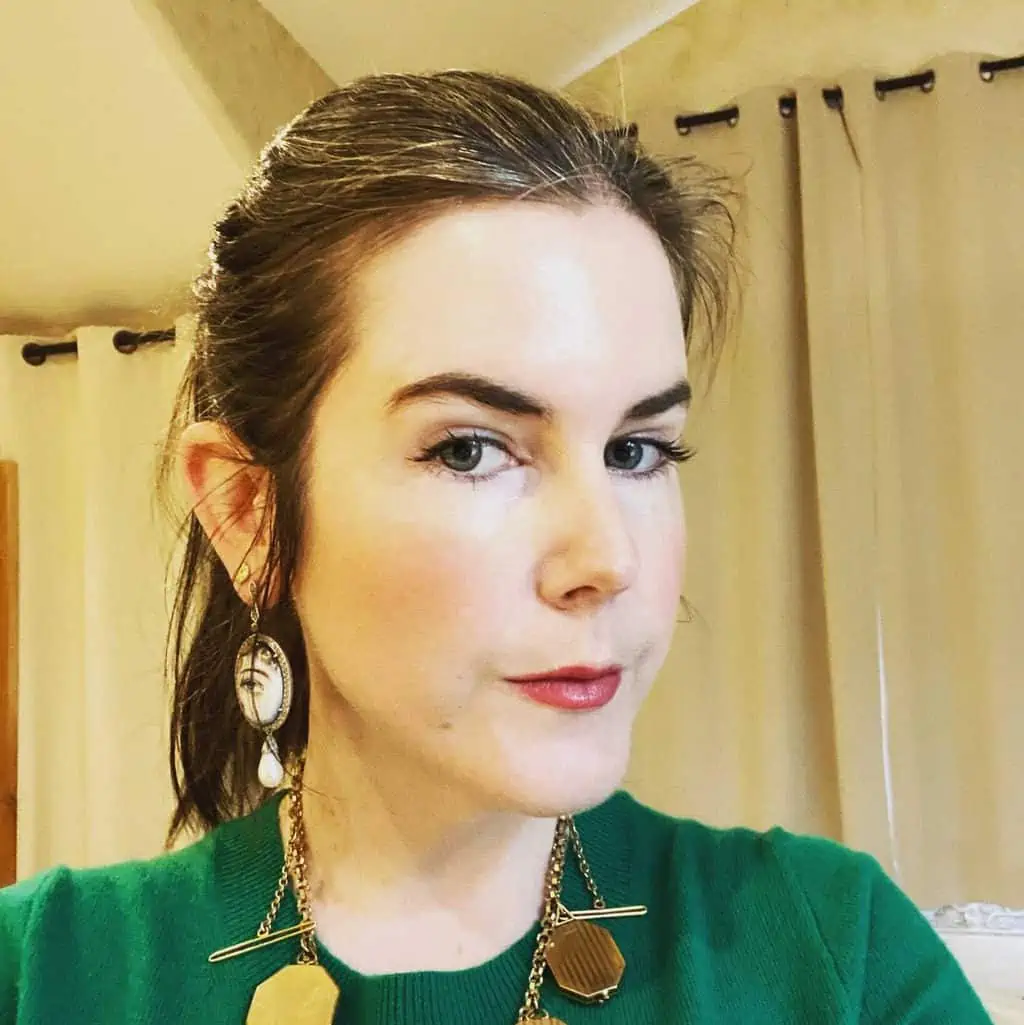
Nicole Cliffe is a writer and editor. Currently, she writes for Slate’s “Care and Feeding” column. She also co-founded and edited the anthology, humor, and feminist writing website The Toast from 2013 to the site’s closure in 2016. In 2018, The Toast was selected by the Library of Congress for inclusion in its web archives as part of a project to preserve culturally impactful digital work. She has bylines in Slate, SELF, Vulture, ELLE, Catapult and The Guardian, and her debut novel will be available soon. A longtime supporter of ASAN, Nicole is funding our Autism Campus Inclusion program through 2029! Nicole is autistic and parent to three children, at least one of whom is autistic.
Harriet McBryde Johnson Award for Nonfiction: Hannah Gadsby
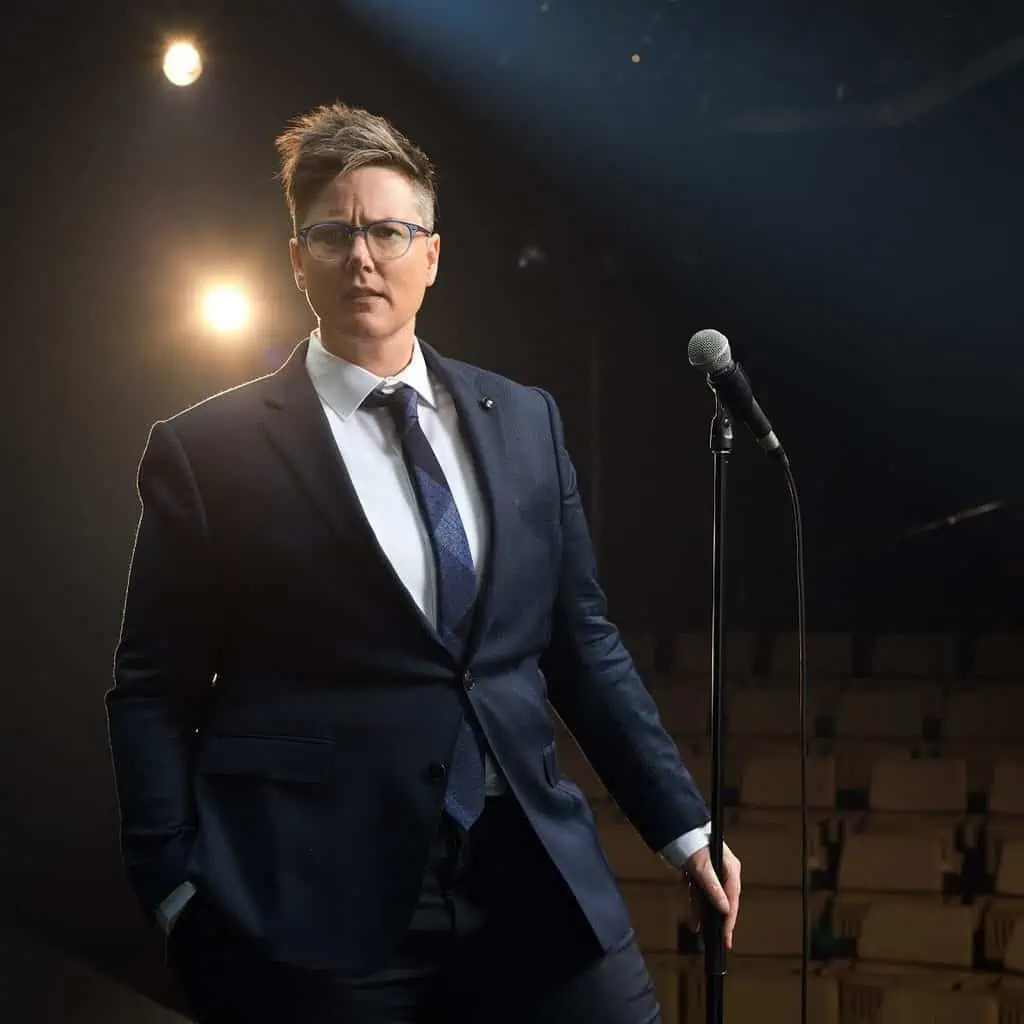
Hannah Gadsby stopped stand-up comedy in its tracks with her multi-award winning show, Nanette, which played to sold-out houses in Australia, the UK and NYC. Its launch on Netflix, and subsequent Emmy win, took Hannah to the world.
Gadsby named her difficult second album after her dog, Douglas. Douglas moved beyond the trauma at the centre of Nanette and instead shared the view from Hannah’s brain – one that sees the world differently but with breathtaking clarity. The show, which covered Hannah’s autism diagnosis, is a grand tour of guffaw, going from the dog park to the High Renaissance and back into an unnamed box. After taking her metaphorical muse for a world tour of a walk, Douglas was released on Netflix and earned its very own Emmy nomination.
Hannah has done many other things over the course of more than a decade in comedy, but that will do for now.
Ally of the Year Award: Michelle Bishop
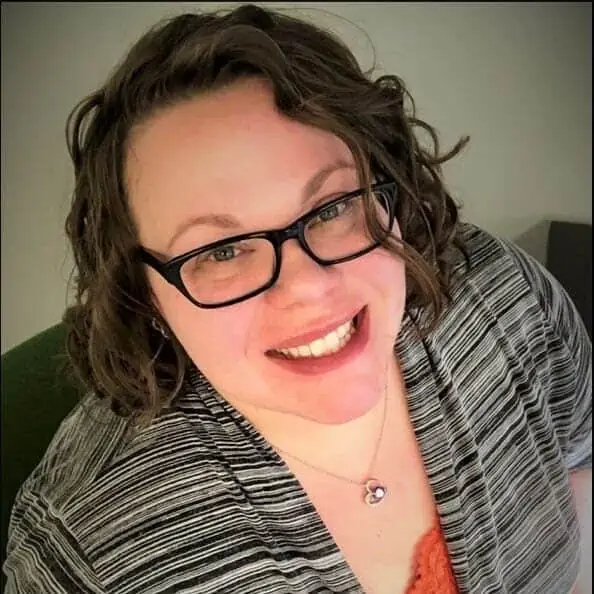
Michelle Bishop is a Voter Access and Engagement Manager at the National Disability Rights Network, providing training and technical assistance to the P&A network regarding voting rights and access for voters with disabilities. This year, she has been working to ensure access for all voters with disabilities during the unexpected and challenging environment of the COVID-19 pandemic, advancing systemic and legal advocacy to challenge voter competency laws and limiting voting rights under guardianship, and ensuring elections security concerns are balanced with federal mandates to making voting accessible for all. She has also been leading NDRN’s effort to include more plain language and Easy Read materials to ensure that all people with disabilities can understand the importance of our vote.
Awards for Service to the Self-Advocacy Movement: Max Barrows, Teighlor McGee
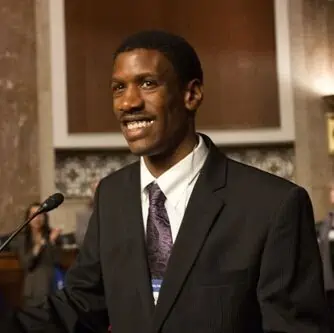
Max Barrows is Outreach Director for Green Mountain Self-Advocates (GMSA), a position he has held since 2007. He mentors youth and adults with developmental disabilities to speak up for themselves and become leaders. This year, he was an integral part of GMSA’s response to the COVID-19 pandemic. He has fought for the rights of people with disabilities during the pandemic through opposing discriminatory medical rationing and advocating for accessible information about the coronavirus and the country’s response. He played a lead role in the production of accessible information about the current wave of protests against racial injustice, including working alongside ASAN and AAPD to produce a plain language explainer on police violence and anti-Black racism. In July, he appeared on PBS NewsHour to celebrate the 30th anniversary of the ADA and call for all people with disabilities to live productive, independent lives.
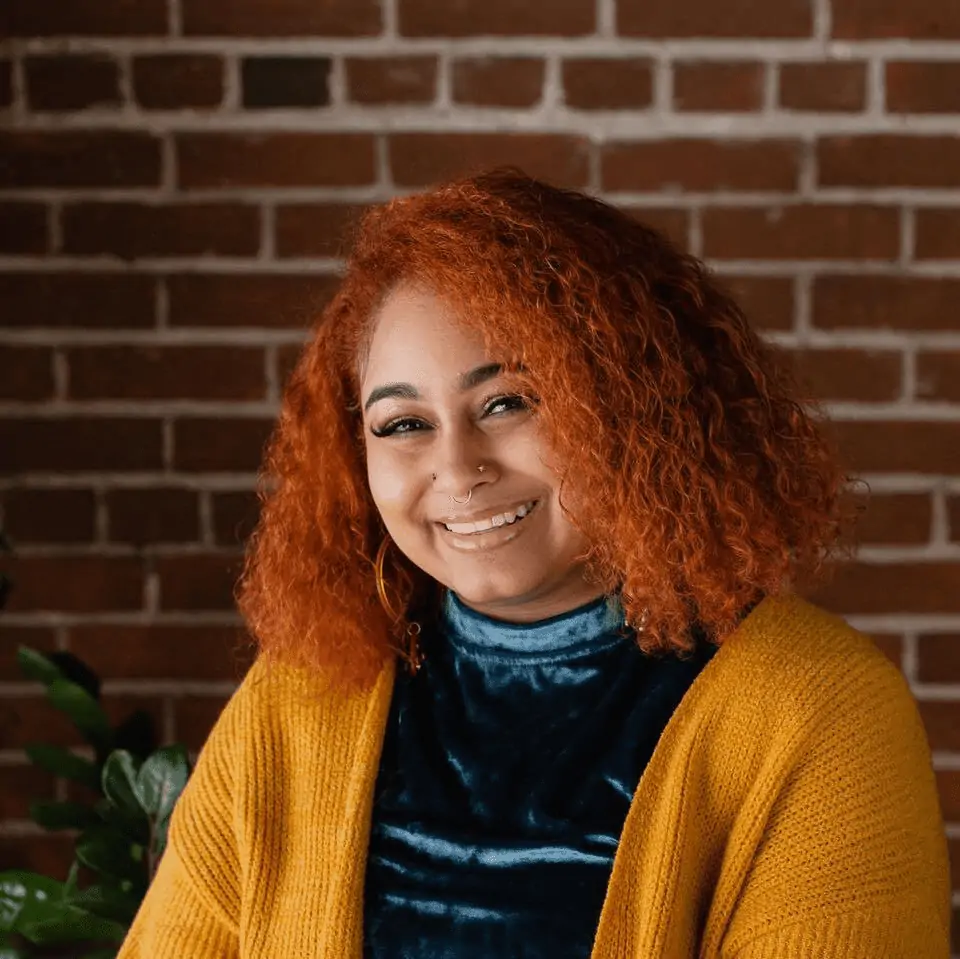
Teighlor McGee is a disability advocate and performing artist whose work centers around racial justice and creating a culture of access. Teighlor is a writer, facilitator, and content creator organizing around issues regarding disability rights. She is the founder of the Black Disability Collective, an online movement focused on centering the narratives and lives of black disabled individuals. Teighlor has work currently featured The Progressive and MNArtists.org. Teighlor currently works for Women for Political Change as the Director of Access and Community Engagement. This summer, Teighlor acted as a bridge between digital and on-the-ground organizing, using the Black Disability Collective’s Twitter account to provide updates on street medics’ locations, connect youth of color with street medicine trainings, and call for supplies like personal protective equipment (PPE) for protestors. She also led Women for Political Change to open a fund to send financial assistance to folks on the frontlines. She hopes to show that everyone can be a part of community organizing, even digitally.
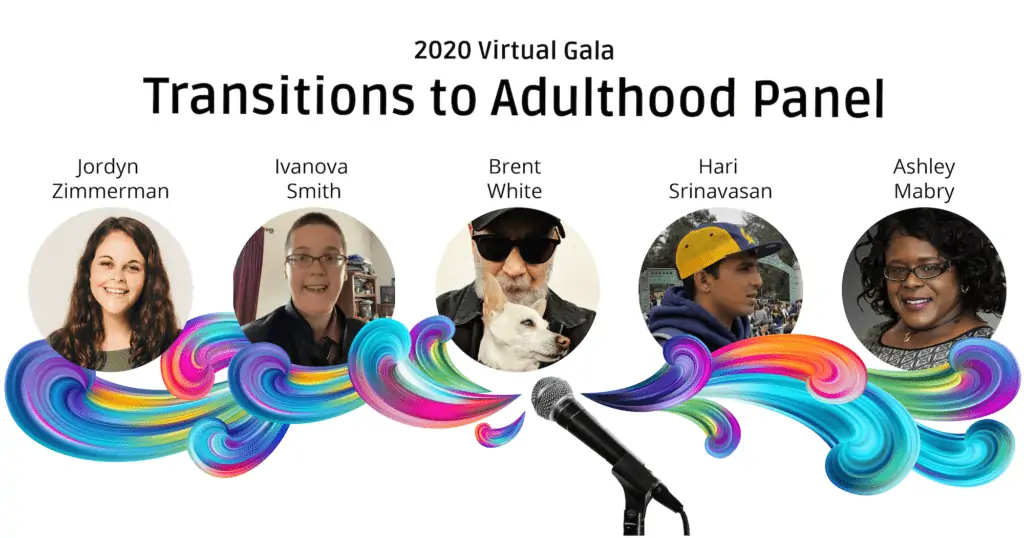
Featuring autistic self-advocates from all walks of life, our Transitions to Adulthood Panel will focus on those tough decisions as we grow and change. Come ready to hear real answers about creating support networks, finding and keeping a job, choosing paths, and navigating college.
Jordyn Zimmerman graduated with her bachelor’s degree in education policy from Ohio University. She is currently pursuing graduate studies at Boston College. In 2014, technology opened up Jordyn’s world, helping her to become an avid advocate. With a determination to help others, Jordyn hopes to become a catalyst for change in education.
Ivanova Smith was born in Latvia, and spent the first 5 ½ years in an institution there before immigrating to the United States. Ivanova is a person with Intellectual and Developmental Disabilities (I/DD). Married and parenting a 2 year old daughter, Ivanova is in addition an activist and advocate for employment for people with disabilities. Ivanova works as a faculty member for the University of Washington Leadership Education in Neuro-developmental and Related Disabilities (LEND) Department. Ivanova is the state President of Self-Advocates in Leadership (SAIL), and a member and President of the Pierce County Chapter of People First of Washington. Ivanova lives with her family in Tacoma, Washington.
Brent White is Autistic, Dyslexic, and multiply Neurodivergent. He is a grassroots researcher and scholar. 12 years ago he designed and has been directing a Community-Based adult transition program for the Berkeley Unified School District as well as a Community-Based adult day program for a non-profit in Berkeley, CA ever since.
ASAN board member Hari Srinivasan is a minimally-speaking autistic at UC Berkeley majoring in psychology and minoring in Disability Studies. At Berkeley, he teaches a semester-long class on autism, is the first nonspeaking president of the student org, Spectrum at Cal, is a Daily Californian journalist and RA at the university Psychology Research Lab as well as the UC Berkeley Lab. Recently Hari was featured on President Obama’s Instagram campaign for the 30th anniversary of ADA.
Ashley Mabry loves to speak in public and tell all people with disabilities about the importance of being a self advocate. She was the president of a local self advocacy group, and is active in her community. Ashley was one of the first students in Colorado’s Inclusive Higher Education Program, attending UCCS and majoring in Self Advocacy and Human Services. She graduated in May 2020. Ashley was named a SARTAC (Self Advocacy Resource and Technical Center) Fellow for 2020-2021, creating resources to teach students to be self advocates in their IEP meetings. In her spare time, when we aren’t in a global pandemic, Ashley enjoys praise dance at her Church, going to movies, and hanging out with friends.
The panel will be moderated by Haley Outlaw.
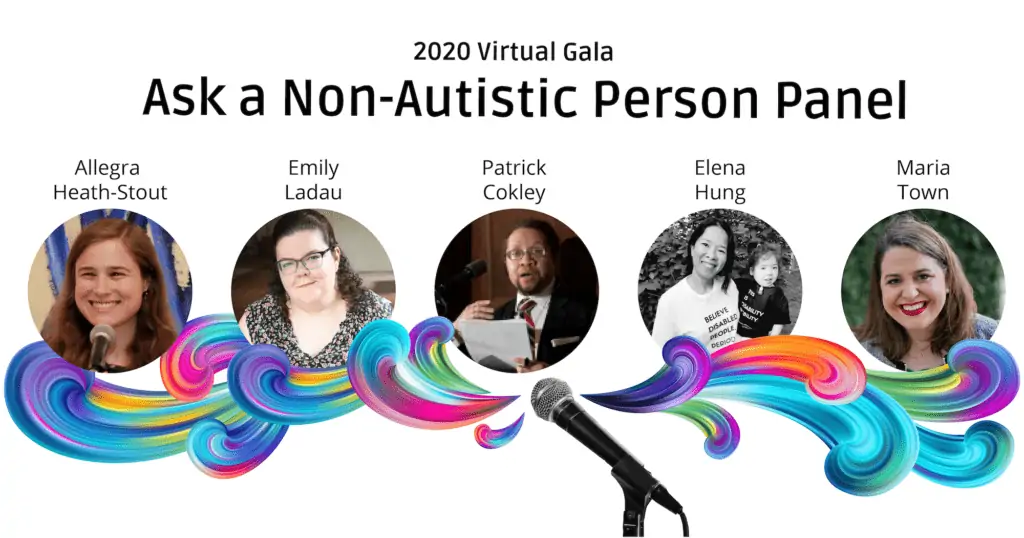
Inspired by Autreat, our “Ask a Non-Autistic Person” panel will bring some hard-hitting questions and much-needed humor. This is your chance to get answers to what truly confuses us about non-autistics — When did they know they were non-autistic? What’s up with eye contact? And when they ask how we’re doing, do they really not want an answer?!
As Fellowship Director and Trainer at JOIN for Justice, the Jewish Organizing Institute and Network, Allegra Heath-Stout trains Jewish young adults in community organizing. Allegra has spearheaded the creation of the Empower Fellowship and the Access to Power Fellowship, both dedicated to developing the leadership of Jewish young adults with disabilities. Previously, Allegra organized with low-income people with disabilities at Boston Center for Independent Living.
Emily Ladau is a writer and speaker whose career began at age 10, when she appeared on Sesame Street to educate children about her life with a physical disability. Her writing has been published in outlets including The New York Times, SELF, Salon, Vice, and HuffPost and she has spoken before audiences from the U.S. Department of Education to the United Nations. More about Emily’s work can be found on her website, Words I Wheel By. Follow her on Twitter at @emily_ladau.
Patrick Cokley is Disability Policy Engagement Manager at Anthem Inc., supporting Anthem’s continued engagement and communication with stakeholders on healthcare related strategies that affect disability and aging. Prior to joining Anthem, Mr. Cokley worked at the U.S. Department of Labor, where he served as Director of the Workforce Recruitment Program (WRP) at the Office of Disability Employment Policy. The WRP works with colleges and universities to connect students with disabilities to opportunities for Federal employment. Mr. Cokley’s expertise includes emergency preparedness for individuals with disabilities, as well as the relationship between diversity issues and disability in the workplace. As a graduate of the historically black Howard University, Patrick believes that it is imperative that the disability and traditional diversity communities learn to work together as they both share the core values of inclusion.
Elena Hung is the Executive Director and Co-Founder of Little Lobbyists, a family-led organization that advocates for children with complex medical needs and disabilities. Elena, her daughter Xiomara, and families like them have been visiting Capitol Hill and offices across the country to speak with lawmakers about what is possible with access to quality, affordable health care, and what is at stake without it.
Maria Town is the President and CEO of the American Association of People with Disabilities. In this role, she works to increase the political and economic power of people with disabilities. Town is the former senior associate director in the Obama White House Office of Public Engagement where she managed the White House’s engagement with the disability community and older Americans. Prior to this, Town was a policy advisor at the Department of Labor’s Office of Disability Employment Policy. She has particular expertise in areas of youth development and leadership and promoting college and career readiness for all youth. In addition to her disability policy work, Town is the creator of the popular CP Shoes blog where she writes about fashion, design, and disability. She hails from Louisiana, where her family still resides.
The panel will be moderated by Zoe Gross.
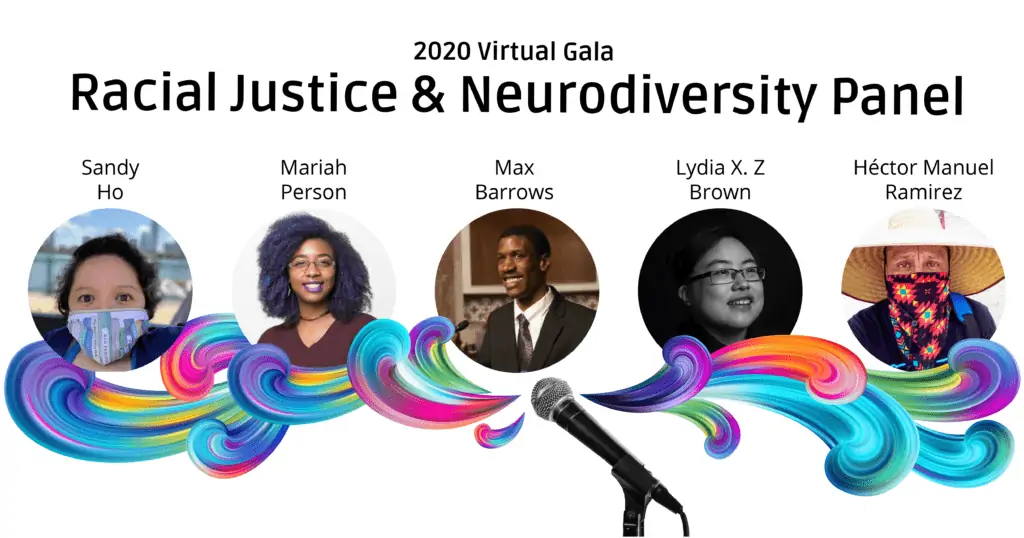
This summer, widespread protests against police violence drew renewed national attention to racial injustice. The stories of Matthew Rushin and Neli Latson remind us of the disproportionate effect of police violence on Black autistic people. The disability community must work to end police violence and systematic racism — and understanding the intersection of racism and ableism is an important part of that work. Join us to learn from disabled advocates of color as we discuss topics like health care disparities facing people of color, anti-racism work in the neurodiversity movement and more.
Sandy Ho is a research associate with the Lurie Institute for Disability Policy, as well as a community organizer in the Boston area focused on disability justice and intersectionality. She is the founder of the Disability & Intersectionality Summit. Sandy is a disabled Asian-American queer woman.
Mariah Person received their official autism diagnosis at the age of 25, in July 2019. They are an aspiring dance movement therapist, intending to help people to heal and develop through movement, and help others understand the significance of stimming. Currently, they create accessibility-conscious curriculums for their dance/creative movement students. Mariah is still on the recovery end of burnout & is exploring how they can be of use to communities again. Last year, they put on their first “autistic space” event called Express Unbound, and are looking forward to continuing creating autistic-led accessible social spaces in the future.
Max Barrows is Outreach Director for Green Mountain Self-Advocates, a position he has held since 2007. He mentors youth and adults with developmental disabilities to speak up for themselves and become leaders. Max connects with people on all levels advocating for true-inclusion of people with developmental disabilities. In his work, he advances the message that when you meet an individual with a disability, presume competence. He received a White House Champions of Change award for this work in 2015. On a personal level, Max has a very high interest in extreme weather and he likes to watch college and professional sports.
Named one of the most impactful Asians in America by Gold House Foundation, Lydia X. Z. Brown is an internationally recognized disability justice advocate and attorney whose work has focused on interpersonal and state violence against multiply-marginalized disabled people living at the intersections of race, class, gender, sexuality, nation, and language. They are Policy Counsel for Privacy and Data at the Center for Democracy and Technology; Adjunct Lecturer in Disability Studies at Georgetown University; Director of Policy, Advocacy, & External Affairs at the Autistic Women & Nonbinary Network; and founder and volunteer director of the Fund for Community Reparations for Autistic People of Color’s Interdependence, Survival, and Empowerment.
Héctor Manuel Ramírez is an Autistic Chiricahua Apache and Mexican Two Spirits person that lives in Yaanga, Tongva-Los Angeles, CA the ancestral lands of the Fernandeño Tataviam Band of Mission Indians. He is a disability rights advocate & board member for the National Disability Rights Network & Disability Rights California.
The panel will be moderated by Noor Pervez.
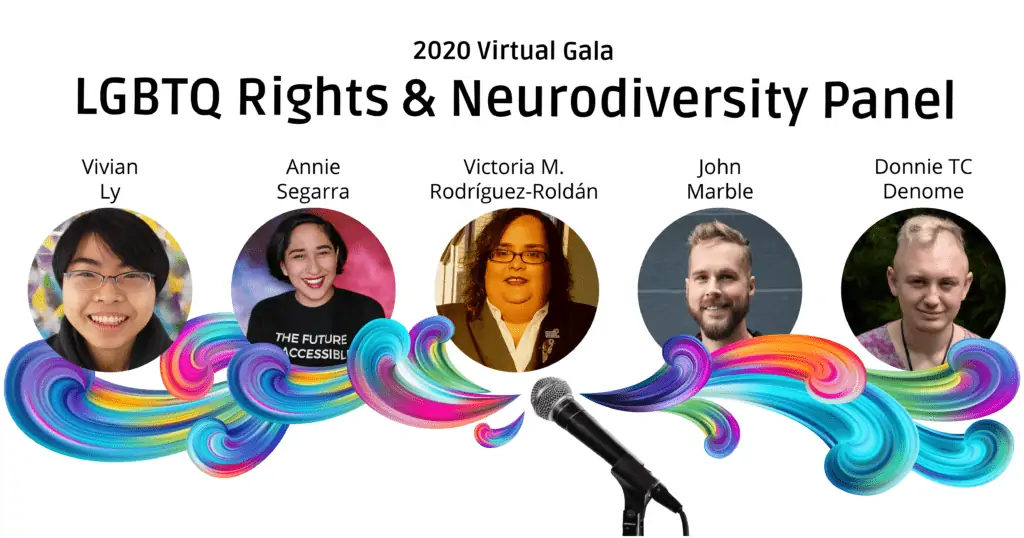
Many autistic people are also lesbian, gay, bisexual, transgender, or queer (LGBTQ), and our overlapping communities share many challenges and goals. In this panel, we’ll hear from autistic LGBTQ people about intersectionality, accessibility in queer spaces, representation, and more.
Vivian Ly is an Autistic, disabled, queer, Cantonese settler on Coast Salish territory who dreams of a world where no one is left behind. Vivian’s work with Autistics United Canada focuses on disability justice, community care, and Autistic-led policy and research. While studying neuroscience at SFU, Vivian creates campus change with the SFU Disability and Neurodiversity Alliance.
Annie Segarra, also known as Annie Elainey, is an American YouTuber, artist, and is a vocal advocate for disability and LGBTQIA+ rights. Segarra uses she and they pronouns, is queer, Latinx, and disabled, advocates for accessibility, body positivity, and media representation of marginalized communities.
Victoria M. Rodríguez-Roldán is the Senior Policy Manager for AIDS United, where she brings her own unique intersectional specialties to the fight against the HIV epidemic. Particular areas of expertise and focus are the intersections of issues affecting people living at the intersections of transgender identity, disability and mental illness through a social justice lens. She currently serves in the board of directors of HIPS, an organization dedicated to harm reduction for sex work and drug use in the District of Columbia and of Equality New York, the Empire State’s leading LGBTQ equality organization. Victoria holds a B.A. in psychology with honors from the University of Puerto Rico, and a J.D. from the University of Maine School of Law. She lives in the Washington, DC area.
John Marble is the founder of Pivot and is a writer and speaker on innovation, autism, and neurodiversity. In 2009, he was appointed by President Obama to the United States Office of Personnel Management. There, his work focused on workforce development, innovation, and incorporating into government services the best practices and thinking of Silicon Valley. In addition to his White House service, he has served as an advisor and aide to Secretary Hillary Clinton, Senator John Kerry, and Vice President Al Gore. John lives in San Francisco. He is autistic.
Donnie TC Denome (they/them) is a gay, non-binary, semi-speaking autistic advocate, an award-winning journalist, and a freelance graphic designer. They are currently a Master’s of Public Health student whose research and advocacy focuses on improving health outcomes for autistic adults and adults who use AAC.
The panel will be moderated by Samantha Crane.
